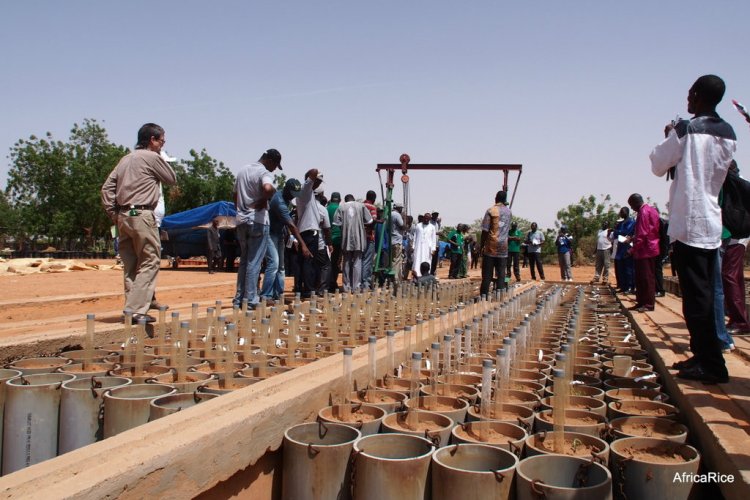Africa development- Challenges and opportunities
Africa's development journey is a complex tapestry woven with both challenges and opportunities. With a rich historical context and a diverse array of nations, the continent faces economic, social, and infrastructural hurdles that require innovative solutions.

This article delves into the multifaceted landscape of Africa's development, exploring the economic challenges, social and human development issues, infrastructure gaps, and the pivotal role of governance and institutions. By examining these key areas, we uncover the potential for sustainable growth and outline strategies to overcome obstacles, ultimately envisioning a brighter future for the continent.
Introduction to Africa's Development Landscape
Africa's development landscape is a complex tapestry woven with historical legacies, current challenges, and future opportunities. Understanding the continent's development journey requires a nuanced approach that takes into account its diverse cultures, resources, and socio-economic realities.
Historical Context of Development in Africa
The historical context of development in Africa is marked by colonialism, exploitation of resources, and post-independence struggles for economic and political stability. Decades of external influences have shaped the continent's path to development and continue to impact its trajectory today.
Current State of Development in Africa
Despite significant progress in some areas, Africa still faces numerous challenges in achieving sustainable development. Issues such as poverty, inequality, and lack of access to basic services hinder the continent's growth potential. However, there are also promising signs of innovation, resilience, and a growing commitment to inclusive development.
Economic Challenges Faced by African Nations
Africa's economic landscape is a mixed bag of opportunities and obstacles. While the continent boasts abundant natural resources and a youthful population, it grapples with persistent challenges that hinder its economic potential.
Income Inequality and Poverty
Income inequality and poverty remain major hurdles to Africa's development trajectory. The gap between the rich and the poor continues to widen, exacerbating social tensions and hindering inclusive growth. Addressing these disparities is critical to building a more equitable and prosperous Africa.
Unemployment and Informal Sector
High levels of unemployment, particularly among youth, pose a significant challenge to African nations. The prevalence of informal sector jobs further complicates the issue, as many workers lack job security, social protections, and access to formal financial systems. Creating more opportunities for decent and sustainable employment is essential for driving economic growth and social stability.
Social and Human Development Issues in Africa
Africa's social and human development indicators paint a complex picture of progress and setbacks. Issues related to healthcare, education, gender equality, and women's empowerment are central to the continent's development agenda.
Healthcare and Education Disparities
Disparities in healthcare access and quality persist in many African countries, impacting the well-being of millions of people. Similarly, challenges in the education sector, such as limited infrastructure, inadequate resources, and low enrollment rates, hinder human capital development. Bridging these gaps is crucial for ensuring a healthier, more skilled population capable of driving sustainable development.
Gender Inequality and Women Empowerment
Gender inequality remains a pervasive issue in Africa, with women often facing barriers to education, employment, healthcare, and political participation. Empowering women and girls through targeted policies and programs can unlock their full potential as agents of change and catalysts for development.
Infrastructure and Technology Gaps
Infrastructure and technology play a crucial role in driving economic growth and social development. However, Africa grapples with significant gaps in areas such as transportation, energy, and digital connectivity, which impede progress and limit opportunities for innovation.
Transportation and Energy Infrastructure Needs
Inadequate transportation networks and unreliable energy supply chains pose challenges to businesses, communities, and overall economic development. Investing in modern infrastructure, such as roads, railways, ports, and energy systems, can enhance connectivity, reduce costs, and stimulate growth across sectors.
Digital Divide and Access to Technology
The digital divide remains a pressing issue in Africa, with many communities lacking access to affordable and reliable internet services. Enhancing digital connectivity and promoting tech literacy can unlock new opportunities for entrepreneurship, education, healthcare, and communication, driving inclusive development and economic empowerment.## Opportunities for Sustainable Growth and Development
1. Natural Resource Utilization
Africa is rich in natural resources, from minerals to agricultural land. Leveraging these resources sustainably can drive economic growth and development across the continent.
2. Investment in Renewable Energy
With abundant sunlight and wind resources, Africa has the potential to lead in renewable energy production. Investing in clean energy technologies can not only address energy poverty but also create job opportunities and reduce carbon emissions.
Role of Governance and Institutions in African Development
1. Corruption and Transparency Challenges
Corruption remains a significant obstacle to development in many African countries. Enhancing transparency, accountability, and anti-corruption measures are crucial for fostering a conducive environment for sustainable growth.
2. Strengthening Rule of Law and Accountability
Effective governance institutions and the rule of law are essential pillars for sustainable development. Strengthening legal frameworks, regulatory bodies, and judicial systems can help ensure accountability and transparency in governance.
3. Strategies for Overcoming Development Challenges
4. Regional Integration and Cooperation
Promoting regional integration and cooperation can facilitate trade, infrastructure development, and economies of scale. By working together, African countries can overcome barriers to growth and maximize their collective potential.
5. Private Sector Engagement and Entrepreneurship
Encouraging private sector participation and entrepreneurship can drive innovation, job creation, and economic diversification. Supporting small and medium-sized enterprises can unlock new opportunities for inclusive growth and development.
6. Conclusion: Building a Brighter Future for Africa
Despite facing various challenges, Africa's potential for growth and development is immense. By harnessing opportunities, addressing governance issues, and adopting strategic approaches, African nations can work towards building a brighter and more prosperous future for the continent.In conclusion, Africa's development journey is a dynamic and evolving narrative that requires collaboration, innovation, and commitment from all stakeholders.
By addressing the challenges and seizing the opportunities presented, the continent can pave the way for a more prosperous and inclusive future. With strategic planning, effective governance, and a focus on sustainable development, Africa is poised to unlock its full potential and embark on a path towards lasting progress and prosperity.













